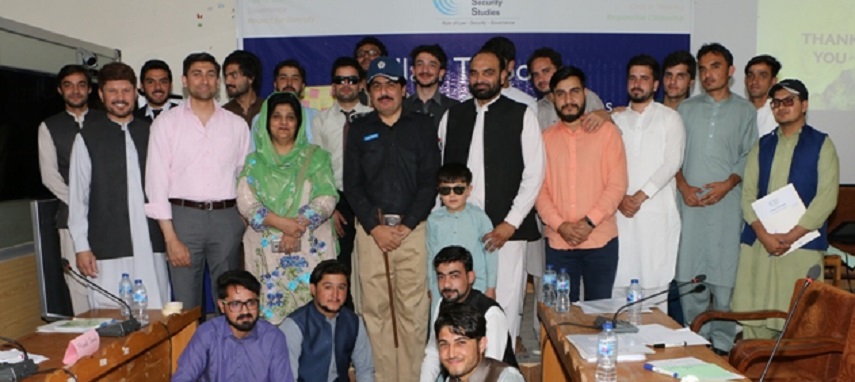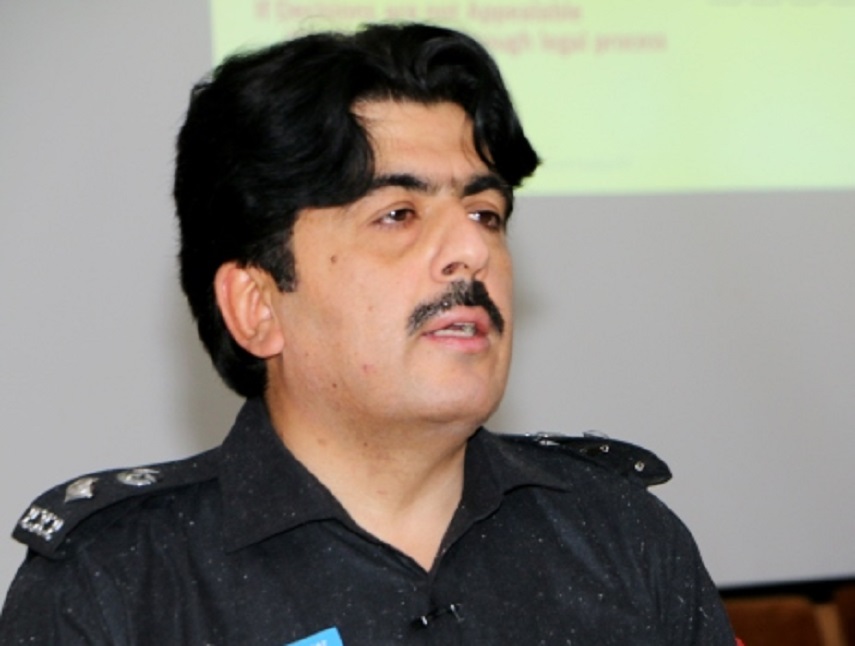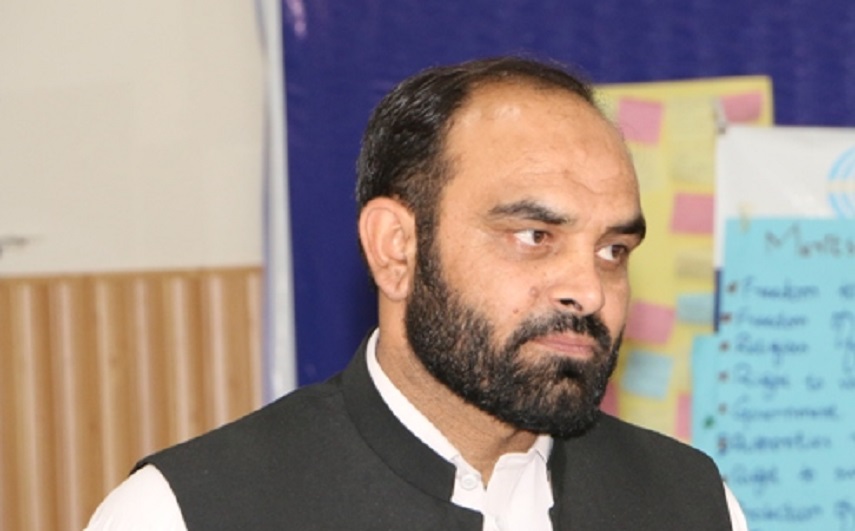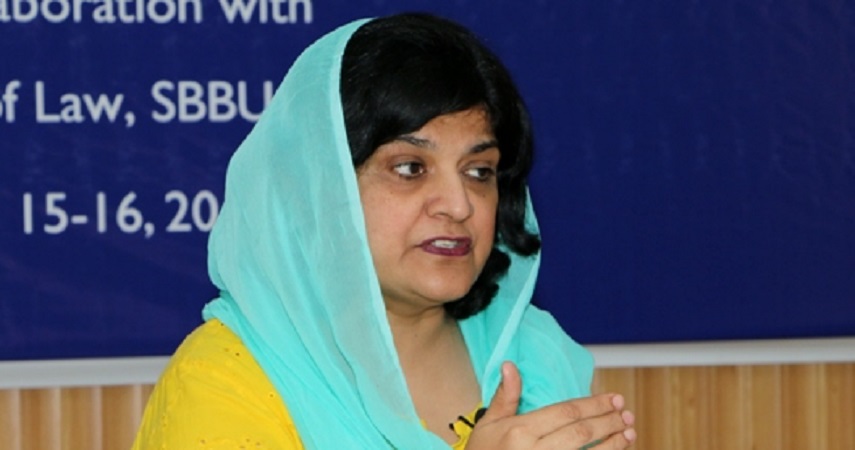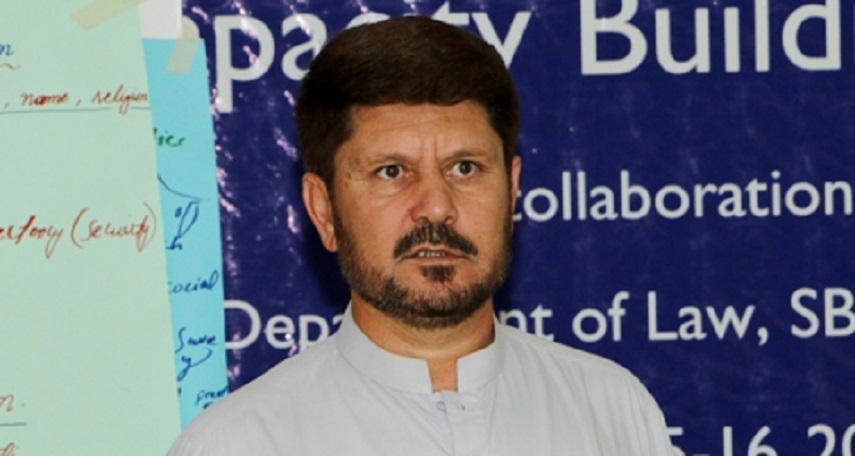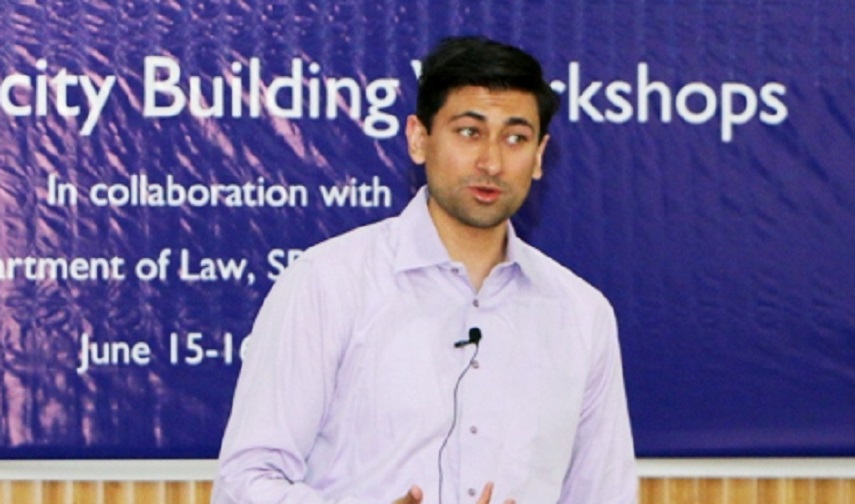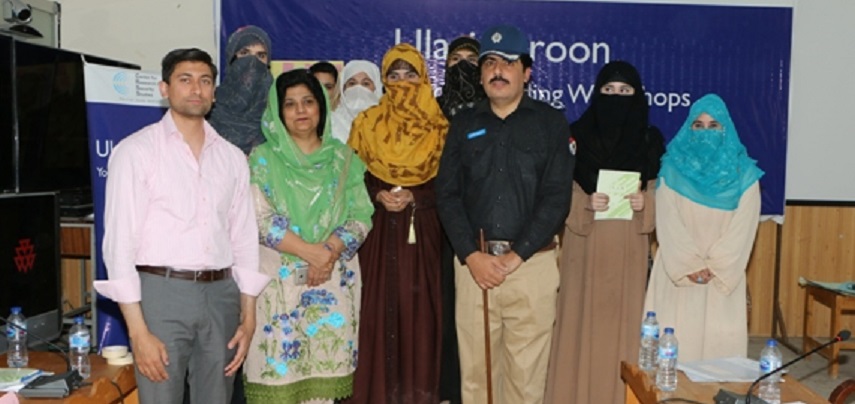Fostering the linkages between the public and police – on mutual cooperation and information sharing mechanism – is need of the hour to bridge the gaps and critical to ameliorate the longstanding public-police trust. The purpose of rule of law is to empower the public with the sense of security and enable them to cooperate with and trust other members of the society as well as the institutions to achieve their shared goals and common objectives of social peace, cohesion and community development. Only in institutionalized form, can power be an authority and its use otherwise is a clear violation of law. The purpose of law is to control the illegal use of power. Rule of law means that everyone is subject to law; government, individuals or businesses. Law is applicable equally to all regardless of how powerful they are in terms of socio-political or economic status.
These were the notions expressed by Mr. Arif Shahbaz, District Police Officer (DPO), Lower Dir during the nineteenth round of Ulasi Taroon, Youth Capacity Building Workshops organized by the Center for Research and Security Studies (CRSS) at and in collaboration with Shaheed Benazir Bhutto University, Sheringal, District Dir (Upper).
The Lower Dir DPO said that even the government is not above the rule of law and there is a system of check and balance that kicks in, in case it exceeds its power or act above the law. The judiciary and media play a crucial oversight role to uphold rule of law and government accountability. Rule of law supports fairness and stability in the legal system and society at large. Absence of rule of law has countless devastating effects on the society where it leads to social disintegration, turmoil, uncertainty, vulnerability, distrust and conflict to name a few. Right and equal access to justice, right to fair trial, freedom of speech, freedom of press and equality before law are some of the fundamental rights, provisions and ideals critical to uphold and smooth operation of rule of law.
A cohesive society is the always characterized by mutual trust and cooperation, responsible citizenship and collective vision of its members. Social cohesion means that there should be no discrimination in the society on the basis of color, cast or creed that disintegrates the society.
The notion of equitable justice calls for the thoughtful consideration of the psychological reasons, poverty, domestic and other such issues that drive individuals towards crimes. Prisons are one of the most neglected departments – by all governments – in Pakistan. The prisons should be an opportunity for rehabilitation but unfortunately – as the data shows – many people who once go to prison are found involved in subsequent criminal activities.
The efficiency of police should only be gauged by comparing the volume of their work with the resources available to them. After consideration of these metrics, one will realize how greatly the police in Pakistan is rendering efficiency.
Syed Liaquat Ali, Head, Department of Law, Shaheed Benazir Bhutto University, Sheringal said that democracy is all about striking a balance of power between the institutions of the state. Respecting will of the people is the key ingredient for the success of any political system. Democracy means that the will of the people reigns supreme with the presence of representatives in the legislature. Democracy provides fundamental rights to the citizens enshrined in the constitution. Democracy and governance are connected in such a way where even the elected representatives are held accountable.
Prof. Dr. Rahmat Ali Khan, Vice Chancellor, Shaheed Benazir Bhutto University, Sheringal thanked CRSS for conducting youth capacity building workshops on social cohesion. Such youth development activities help our future leaders to play their role for community development and social peace.
Mrs. Shagufta Khalique, educationist, underscored the importance of educating public on the rights and responsibilities anchored in their constitution as well as the international commitments like UDHR. The role of youth in promoting these ideals of equality and tolerance is direly needed. Once the diversity and differences are accepted in a society, the ultimate result is peace. Democracy is also an attitude that needs to be inculcated among youth with practical examples. We must understand that dialogue is the key to resolve the disputes and differences rather than force or coercive means.
Mr. Shams Momand, Project Manager, CRSS spoke about the role of media including broadcast, print and social media to counter radicalization and disseminate the positive messages and tolerance perspectives. It has tremendous outreach; key to cultivate the public in the cohesive values. The youth should positively use this platform to spread the messages of peace and harmony.
Mr. Malik Mustafa, Manager Programs, CRSS underscored that the key to social cohesion lies in abiding by the core constitutional values of peace, respect and coexistence enshrined in the constitution. The gratitude, optimism and patience are the virtues that can not only nurture happiness but can also change the way the youth can pursue their visions and achieve success as motivated individuals.
Ulasi Taroon is a counter radicalization initiative of CRSS that aims to address the radicalization challenges, extremist ideologies and foster social cohesion through a discourse anchored in the core constitutional values which are fundamentally essential prerequisites for social peace and harmony. The endeavor aims to cultivate and sensitize the youth – in the universities across KP – in the core values in the Pakistani constitution and our social contract. It’s an attempt to highlight the criticality of abiding by these ideals – such as adherence to rule of law, primacy and sanctity of constitution, equal citizenry, responsible citizenship, respect for fundamental human rights, tolerance for diversity and different opinions, inclusive democracy and good governance – as a measure of fostering social cohesion and peaceful co-existence.

